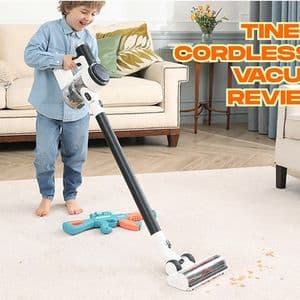What Is an Automatic Hardwood Floor Cleaner?
An automatic hardwood floor cleaner is a device—usually a robot or self-propelled machine—designed to clean wood floors without manual effort. These cleaners can vacuum, mop, or even do both depending on the model.
But here's the thing:
Not all floor cleaners are suitable for hardwood. Unlike tile or vinyl, wood is sensitive to moisture and abrasives. That's why selecting the right automatic cleaner is essential for long-term floor care.
How Does It Work?
At its core, an automatic hardwood floor cleaner uses sensors to navigate around furniture and obstacles. Some models are strictly vacuums, while others include mopping functions with limited water output—ideal for wood surfaces.
Key Features to Know:
-
Sensors and Mapping: Helps the device avoid stairs, walls, and rugs.
-
Soft Brush Rollers: Gentle on wood, avoiding scratches.
-
Low Water Use: Mops dampen but don’t soak the surface.
-
Scheduling: Allows hands-free cleaning during your workday.
These features work together to maintain cleanliness without putting your floor at risk.
Why Wood Floors Need Special Care
Unlike other types of flooring, hardwood can be damaged by excess water or harsh scrubbing.
And here’s why that matters:
-
Water Exposure: Leads to warping and discoloration.
-
Rough Bristles: Can leave scratches or dull the finish.
-
Heavy Machines: May cause dents if not well-padded or properly designed.
Using a hardwood robot vacuum specifically made for these surfaces reduces these risks significantly.
Best Practices for Using an Automatic Cleaner on Hardwood
To get the most out of your automatic hardwood floor cleaner, follow these proven tips:
1. Dry Vacuum First
Even if your machine includes a mopping feature, always run a dry vacuum cycle to pick up loose debris. Small particles can act like sandpaper if they’re dragged across the surface.
2. Limit Moisture
If you’re using a model that includes a mopping function, ensure it uses only a damp cloth or minimal water. Check if your cleaner has adjustable moisture settings and keep them low.
3. Choose Soft Materials
Only use pads and brushes designed for hardwood. Look for microfiber pads and rubber or soft bristle brushes that won’t scratch.
4. Clean the Machine Regularly
An often-overlooked point—your cleaner also needs maintenance. Clean out the wheels, filters, and mop pads weekly to ensure consistent performance and avoid buildup that could harm your floor.
The Role of Navigation and Smart Features
Automatic cleaners have come a long way from the random bump-and-go devices of the past. Many newer models now feature smart navigation systems that map your home and clean in logical patterns.
Here’s the kicker:
Advanced mapping reduces repeated passes in the same spot, which can cause unnecessary wear on your finish.
Additionally, you can schedule cleanings when you're not home, set "no-go" zones, or designate high-traffic areas for more frequent cleaning.
Are Roombas Good for Hardwood Floors?
That’s a common question—and a valid one. The short answer is: yes, many Roomba models are great for hardwood floors.
Why? Because Roombas typically come with rubber brushes and strong suction designed for bare surfaces. Some of the higher-end models even detect floor types automatically and adjust their settings.
Still, it’s important to make sure the model you choose doesn’t have stiff bristles or a high moisture output, as those could damage the wood over time.
What to Avoid When Using a Hardwood Cleaner
Mistakes can happen, especially when first using a robotic cleaner.
Here’s what to watch out for:
1. Using Too Much Water
This is the most common mistake. Even a high-end automatic cleaner can damage wood if it dispenses too much liquid. Never use a cleaner that leaves puddles or saturates the mop pad excessively.
2. Ignoring Maintenance Alerts
If your machine flashes a maintenance warning—take it seriously. A clogged filter or jammed roller can scratch the floor if ignored.
3. Letting It Run Over Spills
If there’s a sticky mess (like juice or sauces), clean it manually first. Most automatic cleaners aren’t designed to handle large, wet messes on hardwood surfaces.
When and How Often Should You Run It?
The frequency of cleaning depends on your household. If you have pets or kids, daily cleaning may be beneficial. Otherwise, 2–3 times a week is usually enough to maintain shine and cleanliness.
Tip:
Use scheduling features to clean during off-hours. It not only keeps the floors tidy but also avoids interrupting daily routines.
What About Pet Hair and Allergens?
Good news—automatic hardwood floor cleaners are very effective at capturing pet hair and allergens. Their suction power and filtration systems trap fine particles that might otherwise become airborne.
If you’re a pet owner, choose a machine with a HEPA filter.
Why? Because it captures microscopic allergens and helps maintain indoor air quality.
Comparing a Roomba Wood Floor Setup to Others
When it comes to hardwood care, not all robotic cleaners are created equal. For example, a dedicated Roomba wood floor configuration often includes dual rubber rollers and advanced obstacle detection—features that reduce risk on delicate surfaces.
Compare that to generic models, which may not differentiate between carpet and wood. These often use aggressive brushes or over-wet mop functions that could be problematic over time.
It’s worth doing a little research before choosing a model, especially if your flooring is real wood rather than laminate or engineered wood.
Final Thoughts
An automatic hardwood floor cleaner is a smart investment for maintaining beautiful, damage-free floors with minimal effort. With the right setup and regular maintenance, these devices can extend the life of your flooring and simplify daily upkeep.
To recap:
-
Use only low-moisture or dry-cleaning models.
-
Clean high-traffic areas more often.
-
Choose soft materials and proper filters.
-
Avoid over-wetting or scrubbing.
Whether you're just exploring options or already using a hardwood robot vacuum, understanding best practices helps ensure you're not unintentionally harming your floors.










